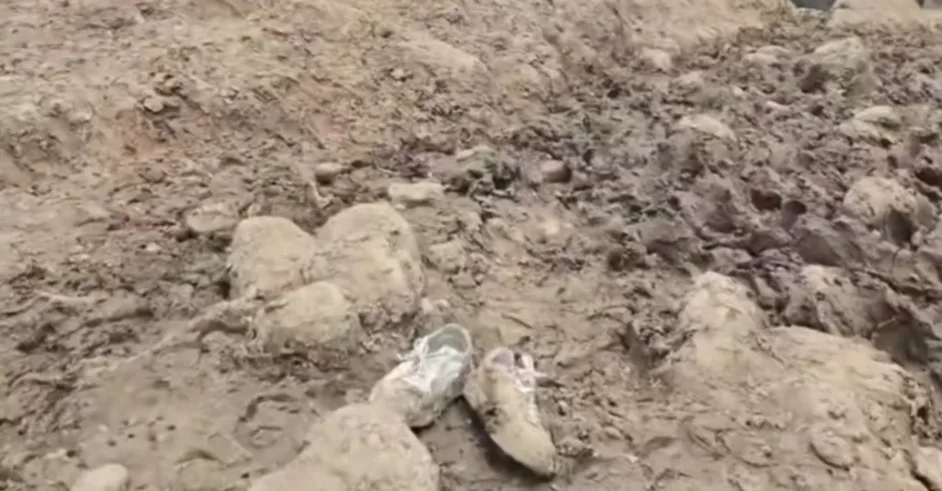By: Ayaan Malik
As always, Pakistan has once again activated its propaganda machinery to spread misinformation and shift blame following the brutal massacre of innocent civilians in Baisaran Pahalgam. In this deadly terror attack, more than 26 people were killed and a dozen injured. Instead of condemning the barbaric act of terrorism, Pakistan is falsely accusing India of orchestrating a so-called false flag operation. This is yet another shameful chapter in Pakistan’s long history of psychological warfare, disinformation, and wilful denial of truth.
Whenever there is a terrorist attack in Jammu and Kashmir or any other part of India, Pakistan’s army, its intelligence agency ISI, and its state-controlled media immediately begin spinning narratives, accusing India of killing its own people. Such claims are not only baseless but deeply insulting to the integrity of Indian defense forces and intelligence agencies, whose primary duty is to safeguard the nation and protect civilians. No civilized country’s security and intelligence apparatus can stoop so low as to kill its own innocent citizens. Only Pakistan, globally labelled as the “epicentre of terrorism,” has repeatedly done so with its own population in various parts of the country, such as Balochistan and Khyber Pakhtunkhwa, and assumes that other countries would behave similarly.
Pakistan has mastered the practice of extreme indoctrination, psychological manipulation, and information warfare. One historical example is how it radicalized the Afghan population during the Soviet-Afghan War, transforming most of the Afghan population into violent fanatics and zombies—because a zombie is internally changed so much that he doesn’t then care about the safety and well-being of himself or others and remains in a killing spree always. The Afghanistan region is still destabilized as a result of the radicalization. Pakistan’s brutal strategy is straightforward: create turmoil, sponsor terror, and then accuse the victim to avoid responsibility.
After the recent Pahalgam attack, thousands of Pakistan-backed social media pages were activated and proliferated by the Pakistani intelligence agency and its social media handlers to wage psychological war against India, blaming it and labelling the Pahalgam tragedy as a false flag operation. Thousands of accounts, particularly targeting audiences in Jammu and Kashmir, pushed this narrative, hoping to sow doubt and confusion. But the world is no longer blind to these brutal tactics. Pakistan is widely recognized as a state sponsor of terrorism, with a well-established terror infrastructure in Pakistan-occupied Kashmir (PoK), continuously financing and supporting militants.
The leaders of these terrorist groups, like Lashkar-e-Taiba, Hizbul Mujahideen, etc., openly and regularly issue threats against India from POJK, holding rallies and conferences where they call for open jihad against India. Recently in this month a rally was held by Jamaat-e-Islami in Pakistan, although it was to show solidarity with Gaza, but the actual target and anti-India rhetoric were clear there; there were calls to wage jihad against India. The mobilization process and recruitment to wage jihad against India are continuously ongoing there in Pakistan, and people take pride in this. Pakistani society is so radicalized that the mothers of these terrorists happily send them to wage jihad against India and immediately disown them, acting as if they don’t exist now, as they did to Ajmal Kadab. Despite global condemnation, Pakistan’s civil and military leadership continues to offer these terrorists diplomatic, political, and moral support”—a” barely veiled euphemism for backing cross-border terror operations. Moreover, Pakistan isn’t concerned about the safety and well-being of Kashmiri people; it only wants to bleed India, and Kashmir is a means to that. Moreover, now that the Indus Waters Treaty is suspended, its jugular vein is also cut.
What is even more disturbing is the tendency of some commentators to casually blame Indian intelligence for such incidents by labeling them “intelligence failures.” This inadvertently shifts blame from the perpetrators to the victims. People who don’t know about the ABCs of intelligence call it intelligence failure. While there may be lapses in security deployment at certain locations, the burden of guilt lies squarely with the terrorists and their sponsors across the border.
Pakistan’s ill designs are clear. It does not want peace in Jammu and Kashmir. Whenever normalcy returns and people begin to live peacefully — earning livelihoods, educating their children, and celebrating life — Pakistan intervenes to keep the pot boiling. Its aim is to bleed India, and unfortunately for Pakistan, Jammu & Kashmir is a means to that. It doesn’t even forgive people in its own backyard: Balochistan, Khyber Pakhtunkhwa, Sindh, and previously in East Pakistan (now Bangladesh), where its military carried out genocide of Bengali Muslims under Operation Searchlight. It is the first country in the world that even used a jet fighter to bomb its own population in Khyber Pakhtunkhwa. Recently, its air force bombed Paktika province, in Afghanistan, and killed 46 civilians, mostly innocent women and children.
Even today, demands for independence reverberate across the various provinces of Pakistan. The Pakistani military state, often labeled as a “garrison state, has destroyed its own society — politically, economically, and socially. Today most of the people in Pakistan want to leave their country; its image has drastically declined at the global level. Its duplicity knows no bounds. It once created and nurtured the Taliban, only to later side with the U.S. for dollars and turn on them. This is a regime that can sell anything — even its ideology — for money or power. Pakistan’s leadership should introspect instead of maligning others. It is not India that is the problem; it is Pakistan’s obsession with using terrorism as state policy. The global community must remain vigilant against its propaganda, expose its lies, and stand firmly with truth and justice.
The writer is a Research Associate, Centre for South Asian Security Studies, India.




